Dr. Doug Kirkpatrick is the CEO and co-founder of Eridan Communications, a company building 5G radios to enable abundant wireless connectivity everywhere in the world. Dr. Kirkpatrick’s professional career includes stints as DARPA’s Chief Scientist (2002 – 2010) and the Vice President of Research and Development at Fusion Lighting (1997 – 2002). He also spent time in venture capital, most notably as a Partner for VantagePoint Venture Partners (2010 – 2013) and a General Partner for InnerProduct Partners (2013 – present). In addition, he also founded natural gas packaging company BlackPack Inc. in 2013. Dr. Kirkpatrick graduated with a doctorate in Physics from M.I.T in 1988, and currently resides with his family in Santa Clara, California.
What does “entrepreneurship” mean to you?
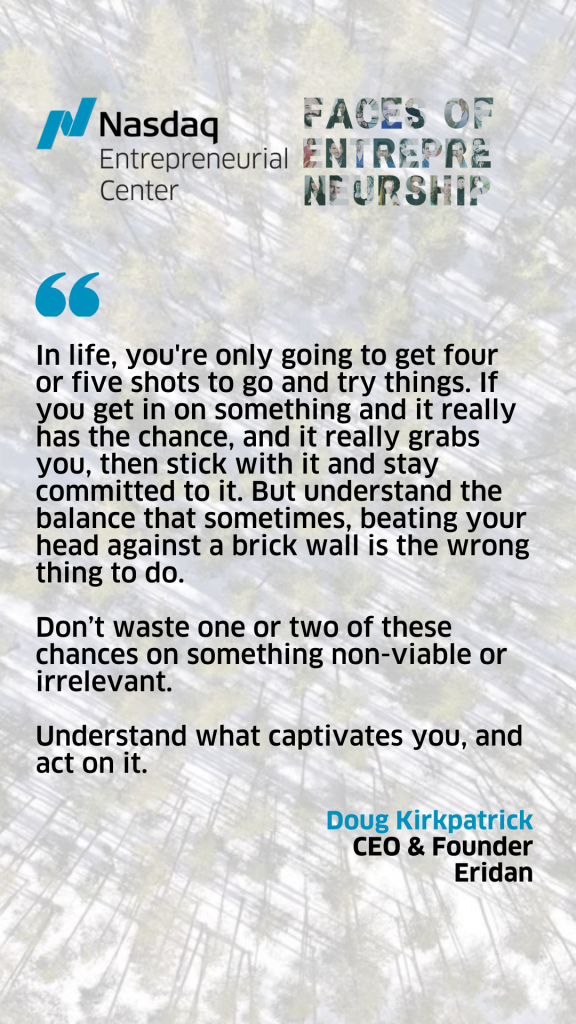 Doug Kirkpatrick: Entrepreneurship means having a vision as to how you want to change the world and having a notion as to how you might be able to do it.
Doug Kirkpatrick: Entrepreneurship means having a vision as to how you want to change the world and having a notion as to how you might be able to do it.
Tell us about your first experience with entrepreneurship.
DK: My first experience with entrepreneurship was when I left SAIC to go join a startup RF lighting company called Fusion Lighting in Rockville, Maryland. I learned a number of valuable lessons there. The most valuable lesson I learned was when to put your ego in your pocket and say, “yes”, even if somebody told you the opposite of what you hoped to hear.
What is your company’s origin story? What is the biggest reason you started your business? What did those early days look like and teach you?
DK: Along with Dubravko Babić and Earl McCune, we founded Eridan in 2013 to bring the luxury of connectivity across the world and empower a sustainable future. The biggest reason? The problem we were trying to solve and how important it was, and the people I was going to have the opportunity to work with to try to take on that problem.
What do you wish you knew when you started? Is there anything you would do differently?
DK: After founding Eridan, I wish I truly understood that we were going to solve a problem that nobody had been able to solve for forty years. And that would have prompted me to think differently about how we were building the company.
Instead, one of my co-founders said, “We’ll only ever be able to do this.” So we focused on building an R&D company that took that as a real block. Then, when we serendipitously realized that that block was not there, we had to take a chunk of time to step backward and turn our head sideways and go, “Okay, the world just changed our entire concept of the company we were building. Now, we only have half or a third of the team that we actually should have had.”
We actually needed people in here that understood how to take something to market and how to build something at a low cost. And, to be blunt, that is an adjustment that is still ongoing, changing the culture of the company, and changing the makeup of the company. To people that actually know how to take an idea and carry it all the way to the commercial market is a very, very different beast than building a company to sell to a DoD prime.
What does “success” look like for you? We’d love to hear your biggest, boldest dream? What do you think will help you achieve it?
DK: Success would look like an Eridan radio in a base station talking to an Eridan radio in a handset. Deconflicting from Eridan radios on military aircraft. Deconflicting from civilian radars, using Eridan radios to build those radars, and fundamentally changing how we use spectrum and how we use energy to create wireless writ large whether that be radar communications or electronic systems.
With Eridan, what you’re looking at is something that is as fundamental of a change in how we make wireless as what Marconi did in the 20s.
What is your superpower as an entrepreneur? What is your proudest and darkest moment so far? Share a key high and a key low from your journey if you can.
DK: My superpower as an entrepreneur is my unbridled confidence to solve problems. You’re going to be faced with problems that you didn’t anticipate. Dropping your head and going and complaining is not going to be the way you solve things.
The low point is easy: the death of my good friend and Eridan co-founder, Earl McCune.
The high is equally as easy: seeing the first demonstration of product mode that allowed us to punch through what we thought was the limitation of our technology and seeing the cleanest 4G signal that had ever been made. There were five or six people in the lab – we were all staring at it going, “How do we tell people about this?”
What are your personal driving principles, your top values?
DK: Those have evolved over time in my career. First and foremost is personal integrity. Second is kindness. It’s not always easy to be kind. Sometimes kindness doesn’t feel like it’s landing as kindness. And finally, transparency.
How have your personal principles and values shaped your company’s values and principles?
DK: I’ve been in that position where I’ve had to give bad news to somebody, and I’ve done it in a transparent way. So that they understand there isn’t a conversation to follow up on. There’s no argument to be had. And I’ve given them recommendations with respect to where they would pursue their future career opportunities. And I’ve been blessed that those people have come back, sometimes months, sometimes decades later, and said, “I didn’t really want to hear what you had to say when you told it to me. But it really was what I needed to hear.” And it changed how I did things, and it made me a happier person. Those are hard lessons to learn.
Have you raised outside capital so far?
DK: Yes. To date, we’ve raised $54M. Most of our capital has been raised through venture capital, with our most recent round being Series B. This was the obvious choice for Eridan: we simply cannot develop our offerings or scale without this level of capital.
Where do you meet investors?
DK: The thinking is every time you have an opportunity to meet fellow professionals – whether in your industry or outside of it – learn from them, make those discussions, and make those connections. Over time, those things build. So treasure those professional connections. These are going to be valuable people for you as a person for the rest of your life and for the rest of your career. Whether they end up being business contacts or not, it’s part of who you are.
How has your network helped you raise capital?
DK: From 2010-2013, I was a Partner at VantagePoint Venture Partners. And from 2013 to the present, I’ve served as a General Partner for InnerProduct Partners.
Your network is crucial in raising capital. I’ve been fortunate to have built up a network of contacts that is just amazing in terms of the people that I can call and say, “Reggie, do you know what’s going on over here?” And he can then walk me through it.
How long have you been in the fundraising process?
DK: As a venture-funded company, we are always fundraising. We closed our Series B in 2022.
What’s it like to work alone or with your partners?
DK: With my team, I’m building a company developing new technology. It’s a full-contact sport. You spend a lot of time together, and you learn things about each other. You have to recognize that everybody’s bringing something different to the table, and you have to value that – and even to some degree, love it – from the perspective of recognizing that is the type of diversity that is the spice that flavors the drink. If you don’t have that, you’re not going to succeed.
Do you have a mentor? Tell us about what makes them valuable to you and your business?
DK: At Fusion Lighting, I had two mentors there. One named Malcolm Smith, and another named Paul Woff. Paul had come to the company as the VP of Manufacturing, but he’d come from GE Lighting. Malcolm was literally hired as a teacher for me when I would get pushed into being the VP of Research, Development and Engineering and all of a sudden was managing 100-plus people. The CEO very wisely said I’m going to give you some mentors that actually understand how to do this.
When I was at DARPA, the Director of the Agency, Tony Tether, was a very good teacher from the perspective of not settling. Tony was really good at saying, “I think you can do more.” And he wouldn’t know that you can do more. He would simply have a gut instinct that said, “you’re sandbagging me. I’m going to drive up the stakes, and I’m going to make it worth your while to go for the gold. Otherwise, why are you here?”
What role does mentorship play in your world (as a mentor or mentee)?
DK: As a mentee, having a mentor was vital to my growth during the early stages of my career. They were commenters, and they were very patient. They had no hesitation whatsoever in telling me when I was being dumb.
Now, I try to have no hesitation telling others when they’re being dumb. I try to tell them in a light-hearted way. You do realize that what you’re doing is dumb. Or you do realize that you’re wasting your time. Or even worse, you’re wasting your time and my time.
Many entrepreneurs continue to perfect their daily routines to support their work and greater vision; would you mind sharing your morning routine or a regular ritual that grounds your work each day?
DK: I always start my morning with two or three cups of coffee, sitting in a chair with either the family dog and ordering and reviewing the things that I will need to take on in the coming day.
We’re all different. Some of the people on the team are night animals. I am very much a morning-thinking person. That’s when my brain is calm. That’s when my ability to write is at its best, and that’s when my thinking processes are clearest and not clouded by other activities that are going on in the background.
What are you reading or have read?
DK: I read for pleasure. There’s a piece out called Oathbringer by Brandon Sanderson, which is science fiction fantasy. And people constantly tell me, “Well, you need to read this business book or that business book.” But if I showed you all the business books on my shelf, you would not say that.
Reading fiction – or anything that’s not technical or in your respective field – holds tremendous value in your professional world. These books give you new ways to think about people interactions, and the number one thing that I deal with in my present role is people interactions. And that’s one of the skill sets that I came to very late in life. So, looking and going, “You know, I can see how this particular part of this story is not going to turn out. This person really ought not to be doing this. Caesar, you probably want to make sure that Brutus has not got your back. It’s not a good choice.”
Where do you go for inspiration?
DK: Long walks
Do you have a favorite quote, mantra, or words of wisdom to get through the tough days?
DK: You can’t push a rope. You have to get on the other side and pull – that’s the only way it works.
What is a problem that keeps you up at night?
DK: Connectivity. We’re now in a world where being interconnected – whether for personal or professional means – is necessary. Yet, many rural regions across the globe simply have been left behind amid an expansion of connectivity. We’re using Eridan to bridge this divide.
How do you think about helping others through your work?
DK: Helping others is the core of our work with Eridan.
Growing up, I had the privilege to live all over the world. I’ve seen a lot of societies and places that have a lot less than we do here in the United States. Many communities are isolated and only participate at the edges of humanity’s next generation. Using our technology to bring connectivity to those who otherwise wouldn’t be connected – that’s what our work is about.
What advice do you have for fellow (and aspiring) entrepreneurs building and leading teams?
DK: In life, you’re only going to get four or five shots to go and try things. If you get in on something and it really has the chance, and it really grabs you, then stick with it and stay committed to it. But understand the balance that sometimes, beating your head against a brick wall is the wrong thing to do. Don’t waste one or two of these chances on something non-viable or irrelevant. Understand what captivates you, and act on it.
I mentor several folks all the time that are much younger than me anywhere from twenty years younger than me to forty years younger than me. And the number one piece of advice that I give them is to ask themselves the question, “Do I still believe this can work? Do I still believe this matters? Is this still worth the next five years of my life?” And if you ever get to the point where you don’t think that’s true, put that off to the side. Continue what you’re doing for another two or three months. But check in with yourself on a regular basis because if over the next two or three months, that feeling doesn’t change, then you need to make a change.
What kind of an entrepreneur do you want to be known as – as in, what do you want your legacy to be?
DK: Hopefully, I’ll be remembered as teaching my colleagues and teams everything that I know how to do – because that’s how you do more.
Do you have someone you’d like to nominate to be profiled in our Faces of Entrepreneurship series? Please let us know by emailing media@thecenter.nasdaq.org or submit your nomination using this form.
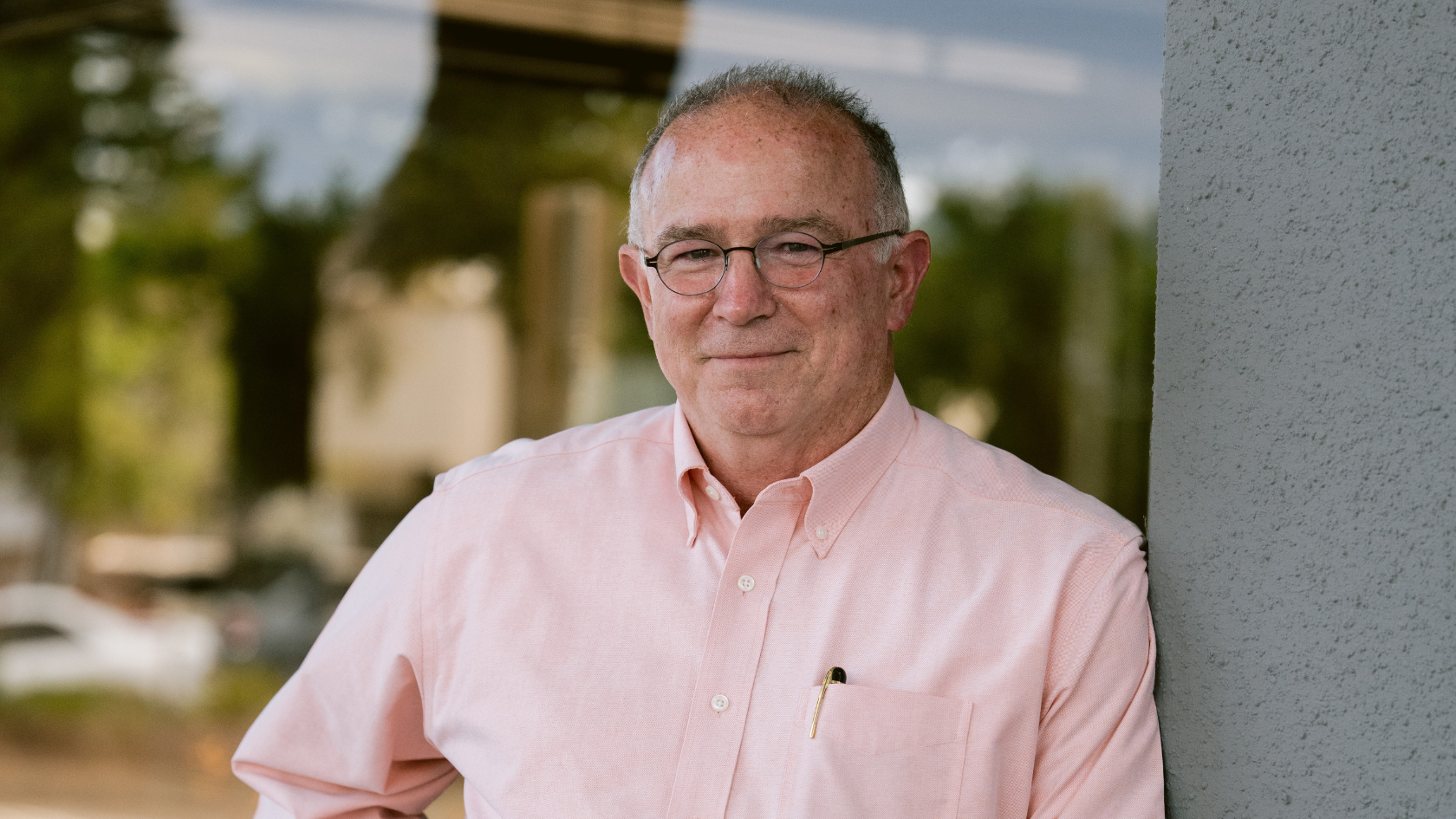
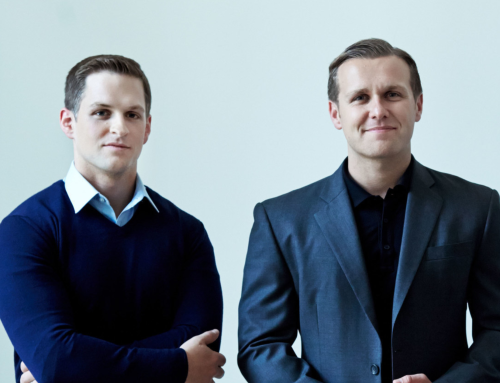
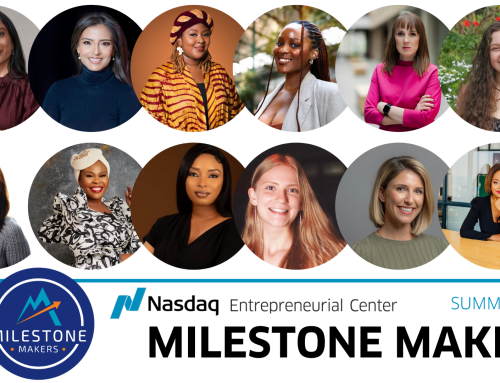
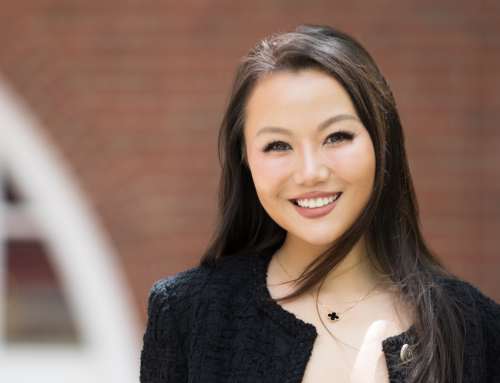
Invite a Friend
Close